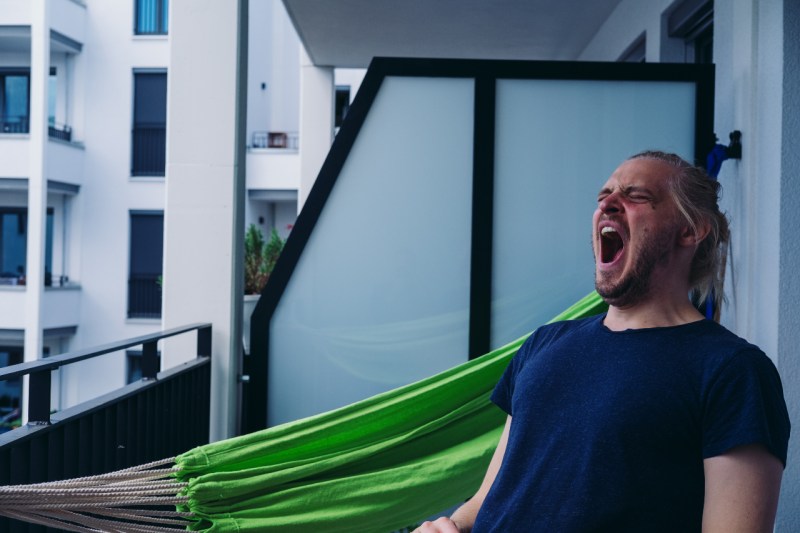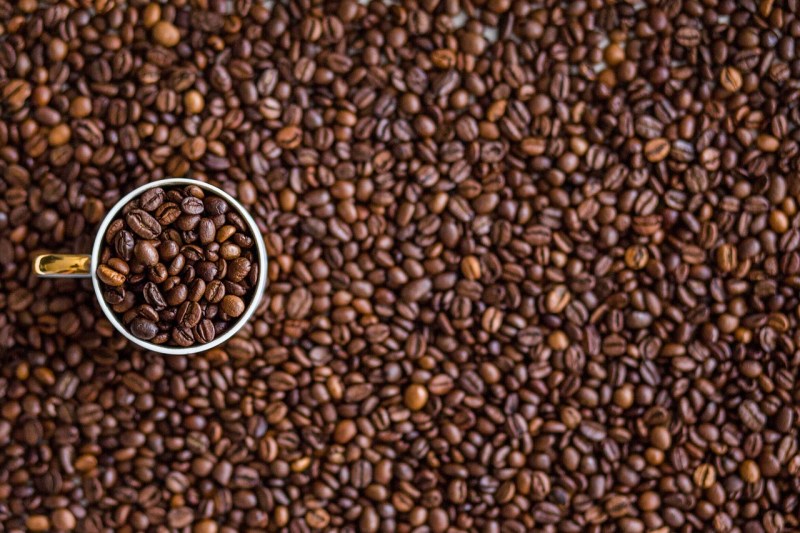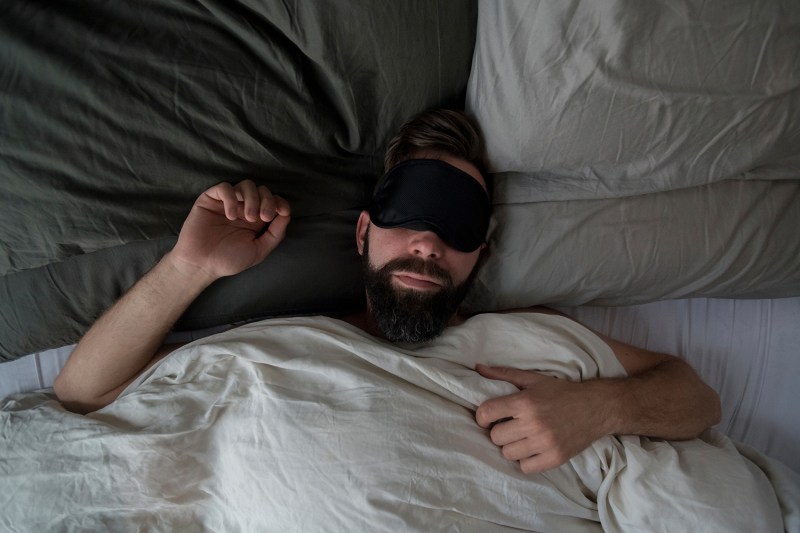There’s a good chance you, like ourselves here at The Manual, love coffee. We’ll take a pour-over, an espresso, a Turkish coffee; we drink it all. That being said, despite consuming caffeine daily, most of us have experienced feeling tired or fatigued, especially in the afternoon. What gives? Well, we’re going to look through a number of articles and studies to help explain why coffee makes us sleepy. Once we understand why our favorite morning brew can leave us groggy, we’ll discuss a few options to help combat this feeling and improve our overall health.
If you don’t already know how important sleep is for the brain, listen to this Fresh Air interview with Matthew Walker that focuses on the importance of sleep.
How Sleep Works

To begin understanding how coffee interacts with our brain and our sleepiness, it’s helpful to look at why and how we get sleepy. We first turned to the New York Times to answer the coffee-sleep question. What I learned is, you should think of sleep as a gradual tipping of the scale. The process begins the moment you wake up. Throughout the day a chemical called adenosine builds up in the brain. As it builds, you grow more tired. By bedtime, enough of this chemical has built up that you are able to fall asleep and stay asleep. This growing amount of adenosine is known as “sleep pressure.”
How Coffee (and Caffeine) Disrupt Sleep
When we consume caffeine, it prevents adenosine from binding to receptors in the brain. This means you will not feel yourself growing tired. That sounds great. Feel less tired, have more energy, get more done. Right? Well, the problem is at the end of the day your brain should be tired and ready to sleep. Instead, the espresso shot you had mid-afternoon reset the clock, and your brain only thinks you’ve been up for six or seven hours. This ultimately makes it more difficult to fall asleep in the evening, meaning you sleep fewer hours, and feel more tired the next day.
Another result from this is that you don’t feel yourself growing tired until the caffeine wears off. The half-life of caffeine is five hours. This means every five hours the amount of caffeine in your system is reduced by half. The cup of coffee you have at six in the morning has halved by 11 a.m., and again by 4 p.m. As the caffeine wears off we begin to feel the sleep pressure that’s been growing throughout the day. All of a sudden, say mid-afternoon, we feel tired. We crash. And this crash is what sends us to the barista to get a little pick-me-up.
The author of the NYT article, Wudan Yan, explains that when we are not sleeping well (and therefore consume more caffeine) it creates a perfect storm for feeling tired. We consume caffeine, which negatively impacts our sleep, which makes us more tired, which makes us consume more caffeine. It’s a vicious cycle. So how much coffee should we drink? Healthline suggests 400 mg per day as a general rule. This equals about 2-4 cups of 8 oz. coffee per day, depending on how strong your brew it.
How to Drink Coffee (and Still Sleep Well)

So, how to blend our love of coffee and our desire to sleep well at night? Let’s look at a few ways.
Consider the Half-Life
The later in the day you consume caffeine, the more of it will be in your system when it’s time to sleep. The takeaway, consume your caffeine early. To start out, do away with the post-lunch espresso shot or energy drink. Sure, that little pick-me-up feels great. But try to avoid it. If you’re serious about a healthier relationship with coffee, push this time earlier and earlier: No caffeine after 11 a.m., 10 a.m., 9 a.m. You get the picture. By keeping your caffeine consumption to the early morning you’ll allow your body plenty of time to process and get rid of this caffeine, which will do loads to help you sleep better.
Consume Less
If you’ve grown accustomed to coffee in the morning while you walk the dog, pick up a red-eye on the way to work, and then slam a pre-workout drink before you hit the gym, chances are you’re consuming more than 400 mg of caffeine daily. If you feel you’re consuming too much caffeine, reduce your overall intake gradually. Going cold turkey can cause headaches and other side effects. If you normally have a third cup of coffee around 11 a.m., not drinking caffeine after 10 a.m. will help reduce your overall consumption.
Switch to Decaf (or Half-Caf, Let’s Not Get Crazy Here)
If you love the taste of coffee and brewing a cup is part of your morning ritual, consider substituting some decaf beans for the full-strength stuff. We like this approach in that it allows you to still consume coffee while subtly adjusting the caffeine level. Not sure where to start with decaf coffee beans? If you want to be scientific about it, you can measure out your coffee by the gram and slowly adjust the ratio of caf/decaf beans. Because you’re still consuming coffee you get the effect of drinking it while subtly changing your overall caffeine intake.
Get a Full Night’s Sleep

That means at least 8 hours for most of us. Getting a good night’s sleep is going to allow you to wake rested and hopefully will prevent you from grabbing another cup of coffee to ward of grogginess. Too much caffeine isn’t the only thing that prevents us from getting a good night’s sleep. You might also consider upgrading your mattress, cutting down on blue light, or reducing your alcohol consumption before bed.
Exercise

Exercising in the morning will give you more energy throughout the day, meaning you’ll need to consume less caffeine. It’s also going to tire you out more so that you’ll sleep better at night. If you don’t already have a regular workout routine in place, consider trail running or full-body workouts that are perfect for at home or the gym.
So that’s why we feel sleepy and how coffee interacts with the brain (and can make us more sleepy), along with some helpful suggestions for how to avoid that midday collapse. Coffee is one of those simple pleasures in life and I hope you’ll continue to enjoy it, just without the crash.


